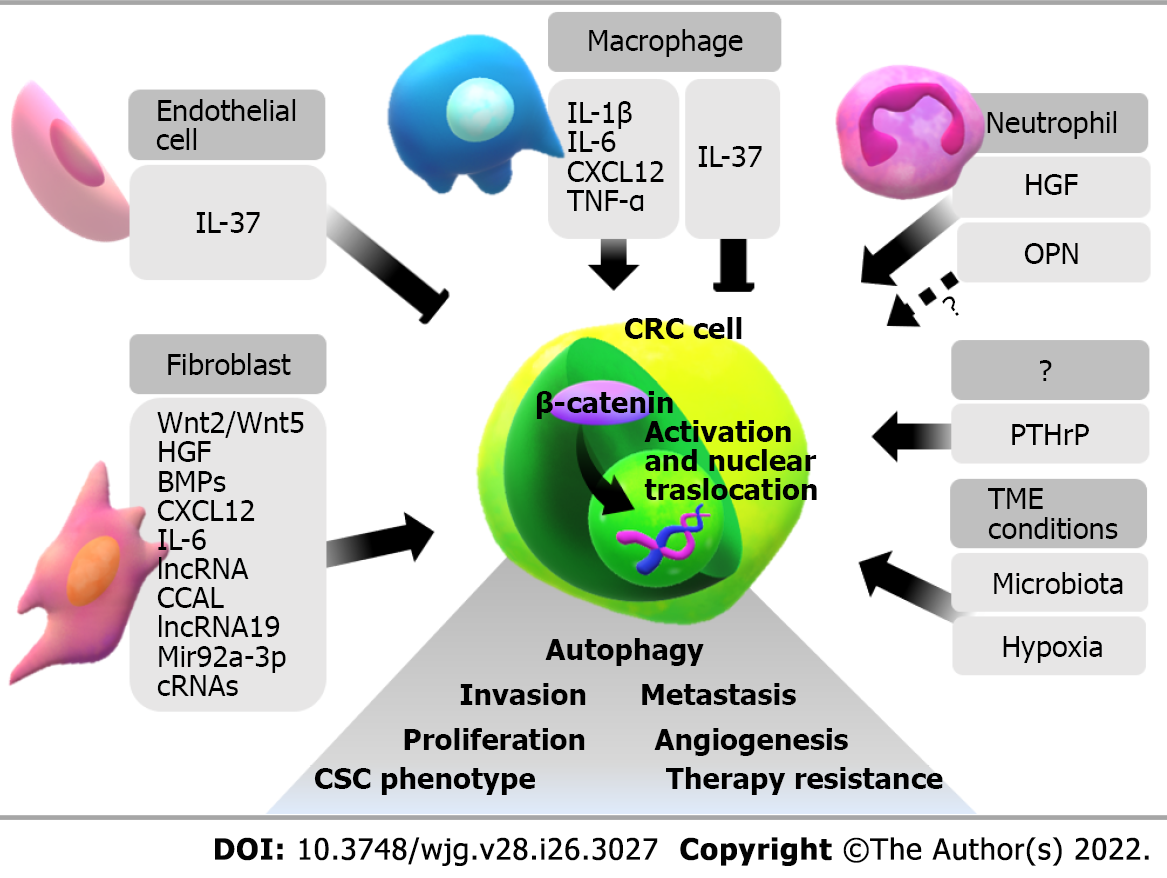Copyright
©The Author(s) 2022.
World J Gastroenterol. Jul 14, 2022; 28(26): 3027-3046
Published online Jul 14, 2022. doi: 10.3748/wjg.v28.i26.3027
Published online Jul 14, 2022. doi: 10.3748/wjg.v28.i26.3027
Figure 3 Influence of tumor microenvironment-derived factors in the activation of β-catenin pathways.
Several cytokines, growth factors, and small nuclei acid molecules secreted by stromal cells induce aberrantly activation of β-catenin and its nuclear translocation in colorectal cancer (CRC) cells promoting events associated with an aggressive phenotype of the tumor cells. Il-37 represses the expression of β-catenin and its transcriptional activity. Osteopontin is statistically associated with the expression of β-catenin in CRC and is known to induce its activation in other types of cancer. More studies are necessary to confirm positive feedback between the secretion of this tumor microenvironment (TME) factor and β-catenin signaling pathways in CRC. In addition to these factors, the microbiota and the hypoxia in the TME, also participate in the modulation of β-catenin activation. This figure is original for this work. BMP: Bone morphogenic protein; CCAL: Colorectal cancer-associated lncRNA; cRNA: Circular RNA; CXCL: C-X-C motif chemokine ligand; HGF: Hepatocyte growth factor; IL: Interleukin; lncRNA: Long non-coding RNA; OPN: Osteopontin; PTHrP: Parathyroid Hormone-related Peptide; TNF-α: Tumor necrosis factor-α; Wnt: Wingless protein.
- Citation: Novoa Díaz MB, Martín MJ, Gentili C. Tumor microenvironment involvement in colorectal cancer progression via Wnt/β-catenin pathway: Providing understanding of the complex mechanisms of chemoresistance. World J Gastroenterol 2022; 28(26): 3027-3046
- URL: https://www.wjgnet.com/1007-9327/full/v28/i26/3027.htm
- DOI: https://dx.doi.org/10.3748/wjg.v28.i26.3027









